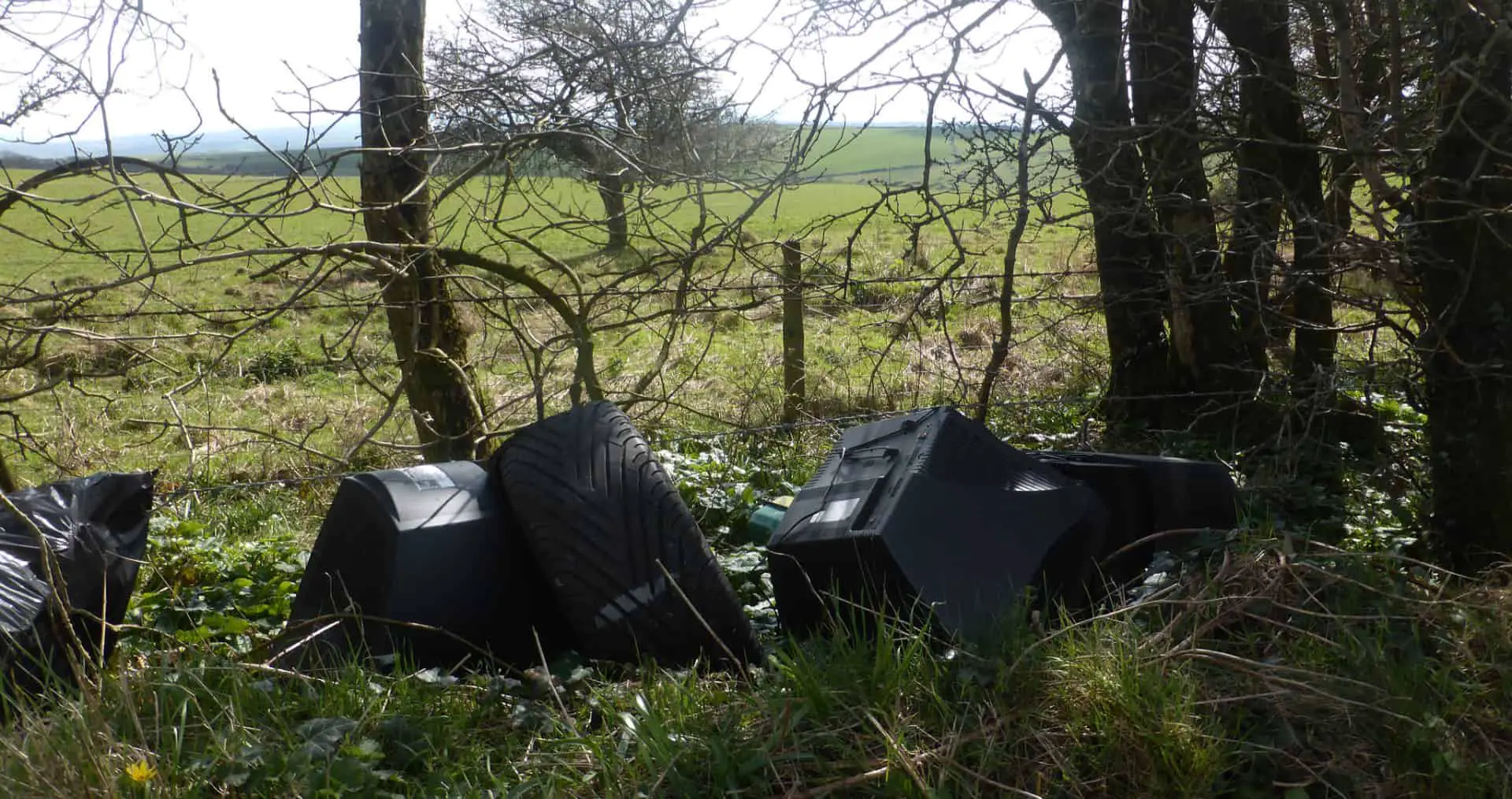Newly-released figures from Defra today (Wednesday) show that there were more than a million incidents of fly-tipping on public land in the last year – and more than 100,000 in the South East alone.
Councils in England dealt with 1.08 million fly-tipping incidents in 2022/2023, though these figures only account for waste illegally dumped on public land that has been reported to the authorities. Representing around 27,000 rural businesses across England and Wales, the Country Land and Business Association (CLA) believes these figures only tell a fraction of the story.
Biles: Fly-tippers continue activities despite villagers’ vigilance
Sam Biles, who farms in Calbourne, Isle of Wight, has seen numerous items dumped in the village. He said,
“The lanes here are not busy and are frequently the scene of fly-tipping. In the last year there have been tyres, broken glass, fridges and builders’ waste dumped in the various laybys.
“It is such a shame – we are in the heart of the Island’s National Landscape and it really detracts from the beauty of our environment.
“However vigilant we are as a community the fly-tippers continue their thoughtless activities.”
Isle of Wight flytipping figures
| 20/21 | 21/22 | 22/23 |
|---|---|---|
| 749 | 855 | 920 |
| 749 | 855 | 920 |
£50,000 a year to clear up waste on private land
Many fly-tipping incidents occur on privately-owned land, painting an even more damaging picture of the financial burden and environmental impact fly-tipping brings. One CLA member is so badly affected he pays £50,000 a year to clear up waste.
Meanwhile the figures also show a 19% drop in the number of fixed penalty notices issued.
CLA South East represents thousands of farmers, landowners and rural businesses in Kent, Hampshire, Surrey, Sussex, Berkshire, Buckinghamshire, Oxfordshire and the Isle of Wight.
Bamford: It’s not just litter blotting the landscape
Regional Director Tim Bamford said,
“These fly-tipping figures barely scratch the surface of a crime that’s blighting rural communities, with incidents on private land going unrecorded on a mass scale.
“Farmers and landowners bear the cost of removing rubbish and they pay on average £1,000 to remove waste. This is not a victimless crime – in some cases they have paid up to £100,000 to clear up other people’s mess or risk facing prosecution themselves.
“It’s not just litter blotting the landscape, but tonnes of household and commercial waste which can often be hazardous – even including asbestos and chemicals – endangering farmers, wildlife, livestock, crops and the environment.
“While courts can sentence offenders to prison or unlimited fines, prosecutions are rare and criminals clearly do not fear the system. We are calling for local authorities to help clear fly-tipping incidents on private as well as public land, while the various enforcement agencies must be properly trained and resourced.
“Without more progress farmers, not the criminals, will continue to pay the price.”
News shared by Michael on behalf of South East Country Land and Business Association (CLA). Ed





